
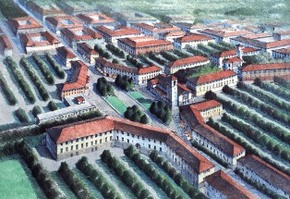
Mark Simpson talked with Plater-Zyberk, founder of the movement "New Urbanism", about whether building entire new communities like Orlando’s Baldwin Park or Kissimmee’s Celebration is still realistic in today’s economy.

The city of Ulan Bator, Mongolia, will attempt to keep itself cool over the summer by way of a kind of artificial glacier. According to the Guardian, this "geoengineering trial" will try to "’store’ freezing winter temperatures in a giant block of ice that will help to cool and water the city as it slowly melts during the summer.
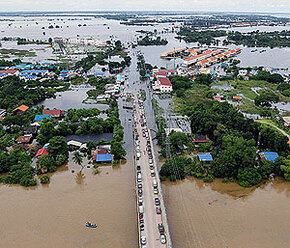
A new river, new highways, new railways and New Towns are among the Thai government’s long-term flood prevention measures.

China’s nationwide real estate boom became so manic last year that many would-be buyers camped in tents on the sidewalks of this tropical island city to be at the front of the line when condominiums went on sale — even though the condos had not yet been built.

Despite the modernistic monuments by the legendary Oscar Niemeyer, Brazil’s retro-futuristic capital city — erected on an expanse of dry plains in central Brazil in the late 1950s and ’60s — has generally drawn few visitors who didn’t have business with the federal government. But as Brazil’s economy booms and its world influence increases, Brasília is coming of age, gaining a new museum here, a cool bridge there, top-shelf restaurants everywhere.

Jakarta, Lagos, and Sao Paolo, and other massive population centers are changing the way we think about cities.
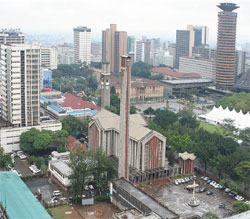
A look at city towns and urban centres in Kenya shows that the country is faced with a serious problem of uncontrolled and unplanned growth and development.Cities and towns have no updated long-term development plans yet major road transport and infrastructure works are being undertaken. To make it worse, Kenya has never prepared national physical and spatial development plan.
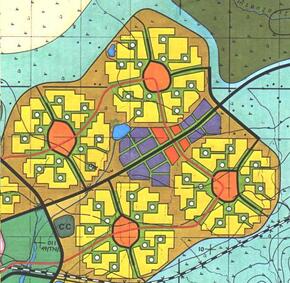
Government regulation and the lack of patient capital make it unlikely a major, new master-planned community could succeed in the U.S., said Donald Bren, chairman of Irvine Co.“I’m not sure that a major community development is a predictable business,” Bren, 79, said today during a talk at the Urban Land Institute conference in Los Angeles. “Government regulations and environmental restrictions have become so overwhelming for large-scale projects that they’re not feasible.”
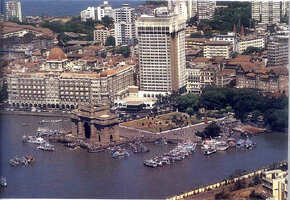
Chotubhai Raghani’s fields in a dry, salty strip of Indian coastline on the Arabian Sea never yielded much wheat but he feels like a lucky man now he’s started selling them at a juicy markup.

Once every two years since 2002, teams of students from all across the United States (and now all across the globe) congregate on the National Mall in a Department of Energy-sponsored competition to design and build energy-efficient, solar-powered homes.

Fourteen years after Beijing’s planned satellite city of Tongzhou rose from a small town with many scattered fields, it still lacks decent schools, hospitals and entertainment complexes that residents need to make it feel like home.
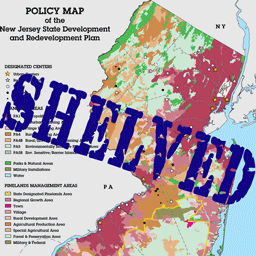
The Christie administration is proposing a radical overhaul of the State Plan, a blueprint state officials devoted years trying to achieve, mostly unsuccessfully, by steering growth to established urban and suburban areas and away from open space and farmlands.
The new strategic development plan emphasizes economic growth instead of environmental preservation by establishing geographic industry clusters where the state will direct investments and resources to bolster high-growth sectors such as finance, healthcare, and the ports.

In the last two years, there’s been keen interest among business leaders in the topic of so-called emerging-market innovation, sometimes also called “trickle-up innovation” or “reverse innovation.” Generally, this concept refers to the practice of adapting inventive low-cost products and services initially created for developing-world nations for audiences in wealthier regions of the world.
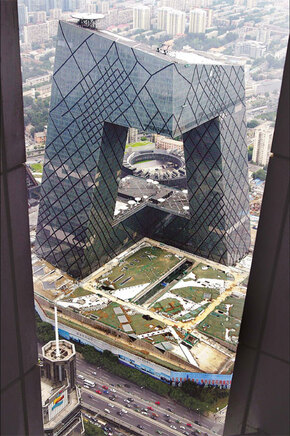
They are an unmistakable part of the urban cityscapes. But is China a playground for international architects or an abused testing ground for bad design? Liu Yujie examines the landscape and finds out if these new buildings are towering landmarks or lasting eyesores.

China announced on Saturday that it plans to use subsidies and tax incentives to build two new economic zones in the far western region of Xinjiang, to open up the landlocked west and boost trade with Central and South Asian neighbours.
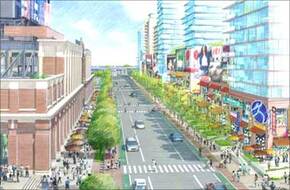
The Karnataka government also recently invited proposals to develop four cities of about 9,000 acres (around 35 sq km) each near Bangalore, according to a developer who has evinced interest in the project.
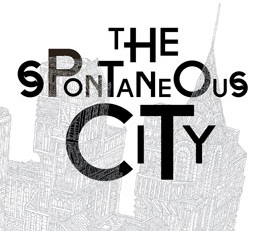
The International Federation for Housing and Planning’s Spontaneous City Working Group is organizing a one-day seminar, in which we would like to invite the international community in the
Netherlands to share their research, personal and professional experiences about Spontaneous Cities.

Historian Ged Fagan is the author of Liverpool: In A City Living 3, which explores Liverpool’s tenements. Here he examines the lives the first New Skemmers left behind them
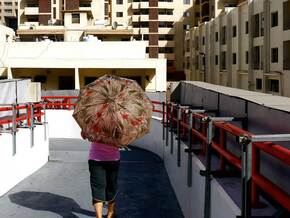
Discussions about the globalization of labor often distinguish between a here and a there. When it is about home, the conversation is framed as ’labor issues’, and when it is about somewhere far away, it more quickly employs disquieting terms like ’human trafficking.’
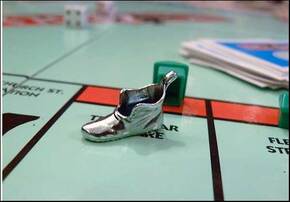
The city, since Monopoly’s success, has remained a recurring feature of the modern game. For better or worse, the city is instantly available for conceptual miniaturization and is an easy target for caricature. The name of a city alone might carry an implied sense of ire, admiration, or adventure. Indeed, many planners were first exposed to planning concepts in games like Sim City.
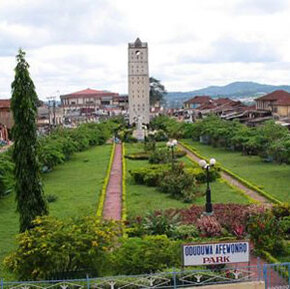
Combining landscape architecture with a rich cosmological system, the Yoruban kings and Ifa priestly castes laid out Ife as a giant turtle, with criss-crossing pathways embedded with deep cultural and religious meaning.
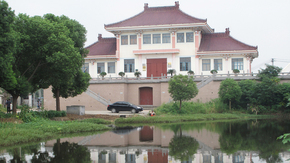
Imagine a city like Los Angeles disappearing from the map completely. That’s exactly what happened to Chaohu, a city in eastern China’s Anhui province with a similar population — about 4 million. The people have remained, but the city has vanished in an administrative sleight of hand.

What are you as an urbanist? What does the ’urban’ mean for you? What is the profession really about? The theme of Urbanism Week 2011 is: SO, YOU ARE AN URBANIST?! This is an open question, sharply reflecting on the importance of the urbanism discipline, looking back, but more so looking into the future. In a multidisciplinary setting, we arrive at a more fundamental perspective on our profession. We want to establish our boundaries and return to the essentials.
Initiative
Polis Platform for Urbanism is the study association for Master’s students in Urbanism in the Faculty of Architecture at Delft University of Technology and others involved or interested in the urban environment. Since the founding year of 1989 Polis has been the platform for knowledge exchange between students, researchers and professionals. It exposes and examines contemporary urban themes. The Urbanism Week is an attempt to, after the fire that destroyed our faculty building, reconnect to this field. In a five-day series of activities Polis aims to rebuild a platform for dialogue and discussion.
Programme
The Urbanism Week consists of two main lines. For professionals, the week has a mini-symposium on Thursday and Friday. This symposium consists of six keynote speakers, a presentation of the Urbanism Alumni Urbanism research, discussion and debate. For students and starters, we have developed a five-day program, which the mini-symposium is part of. On Monday, Tuesday and Wednesday there are various workshops. Six speakers interactively explore the theme from different perspectives. These three days give students the opportunity to learn about the profession and orientate them at the start of their career.
In selecting the 12 speakers, we did not hold back on attaining the most interesting speakers for each subject. . Instead of dreaming from the inside, we have chosen to reflect from outside. We have invited speakers with a challenging agenda and their own fascination.
Publication
The results of the workshops, lectures, discussion and debate are to be released in a publication. The 12 speakers play a leading role, together with reflection from the university by the chairman of the department Prof. Maurits de Hoog, Professor Henco Bekkering and Prof. Vincent Nadin. The publication will be available for all registered participants.
Urbanism Week objectives
> Knowledge exchange regarding contemporary practice
> Promoting connections between theory and practice
> Reflecting Dutch issues on an international scale
> Development of Urbanism critic
> Increasing interest in the importance of Urbanism
Committee of recommendation
Prof. Ir. Karel C.A.M. Luyben, Rector Magnificus TU Delft, Ir. Karin Laglas, Dean of the Faculty,;Prof.ir. Maurits de Hoog, Chairman of the Department Urbanism; Prof.ir. Henco Bekkering, Chair of Urban Design; Prof. Vincent Nadin, Chair of Spatial Planning, Prof. dr. ir. Han Meyer, Professor of Urban Compositions, Faculty of Architecture, TU Delft
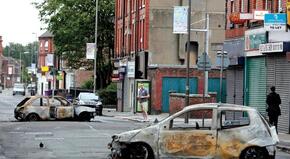
At the end of a week that has witnessed the UK’s worst scenes of civil unrest in decades, urban planning expert Wouter Vanstiphout reflects on what the violence may mean for the future of Britain’s cities.
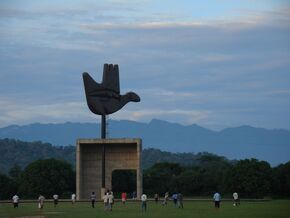
CHANDIGARH: The city has 2,700 heritage pieces in manhole covers spread over northern sectors. After an extensive survey, municipal corporation has identified cast-iron lids, having an impression of the master plan by Le Corbusier. MC assures that efforts will be made to keept these safe.

